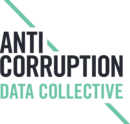$2.6 billion in dirty deals highlight money laundering risks in commercial real estate – report
Washington D.C, 1 May 2024 – The U.S. commercial real estate sector is a hotbed of dirty money, with urgent regulation needed to prevent fraudsters, drug traffickers, corrupt foreign officials and their enablers laundering their ill-gotten gains in the $25 trillion market. At least $2.6 billion in highly suspicious funds has been invested in U.S commercial real estate in the past twenty years, according to a new report by the Anti-Corruption Data Collective (ACDC), Global Financial Integrity (GFI) and the Financial Accountability and Corporate Transparency (FACT) Coalition.
Full report: Money Laundering Risks in Commercial Real Estate
The report reviews 25 cases derived from media reporting, indictments and civil complaints. These cases feature investments from 14 countries, reaching commercial properties in 22 U.S. states. The properties purchased are just as diverse, from hotels and office buildings to store fronts, industrial sites and even a horse training facility. Politically Exposed Persons or oligarchs who typically have close ties to political power feature in 14 of the 25 cases reviewed.
David Szakonyi, Co-Founder and Head of Research at ACDC said:
“From an anti-money laundering perspective, the commercial real estate sector is a toxic mix of complexity and opacity. We see all manner of investment vehicles, private funds and shell companies being used to disguise ownership and stakes, with no requirement for U.S. professionals to look out for suspicious transactions and report them to the authorities. Too often the criminal links to the purchases we reviewed only became apparent years later, when anti-corruption or financial crime investigators overseas honed in on illicit activity.”
Commercial real estate professionals are not required to know their customers or question the source of their funds. The Geographic Targeting Orders program and a recently proposed nationwide anti-money laundering rule from FinCEN only apply to residential real estate.
Tom Cardamone, Executive Director of GFI, said:
“The fact that 14 of these cases involve investments by politically exposed persons or Russian oligarchs speaks to the lack of due diligence and reporting requirements for professionals involved in commercial real estate deals. While no doubt inadvertent on the part of the vast majority of professionals, U.S. commercial real estate is being used to facilitate corruption in many places around the globe.”
“This report shows why new regulation to keep dirty money out of US commercial real estate can’t come soon enough,” said Erica Hanichak, Government Affairs Director at the FACT Coalition. “FinCEN has started 2024 out strong with two proposed rules addressing money laundering risks faced in residential real estate and private investment. The agency should keep up the momentum and bring a strong rule that brings the high-risk commercial real estate sector at least in line with FinCEN’s plans for the rest of the industry.”
The authors recommend that FinCEN regulate commercial real estate sector in a similar manner to its recent proposal for residential real estate, including with:
A cascading reporting requirement for professionals operating in the sector, which explicitly includes attorneys in their legally required closing function in many states.
Coverage of transfers of ownership that do not constitute a sale, as well as transactions involving trusts.
Exemptions only for transactions that have robust due diligence and reporting mechanisms in place by other means.
The authors also urge FinCEN to finalize and implement recently proposed regulation extending AML obligations to investment advisors. In its public comment on that proposal, ACDC recommends that advisors to certain real estate investment funds also be included in the scope of rulemaking. Congress should also pass the ENABLERS Act introduced in 2022 to target the white-collar enablers of financial crime and corruption, the organizations behind the report said.
ENDS
For more information:
Anti-Corruption Data Collective
Michael Hornsby michael@acdatacollective.org
Global Financial Integrity
Tom Cardamone tcardamone@gfintegrity.org
FACT Coalition
Erica Hanichak, ehanichak@thefactcoalition.org
See also:
ACDC comment, press release & web article on proposed regulation for investment advisors, April 16, 2024
FACT Coalition press release, April 16, 2024: FACT, Allies Join Chorus of Support for Treasury’s Proposed Landmark Anti-Money Laundering Safeguards
GFI report, August 2, 2021: Acres of Money Laundering: Why U.S. Real Estate is a Kleptocrat’s Dream
